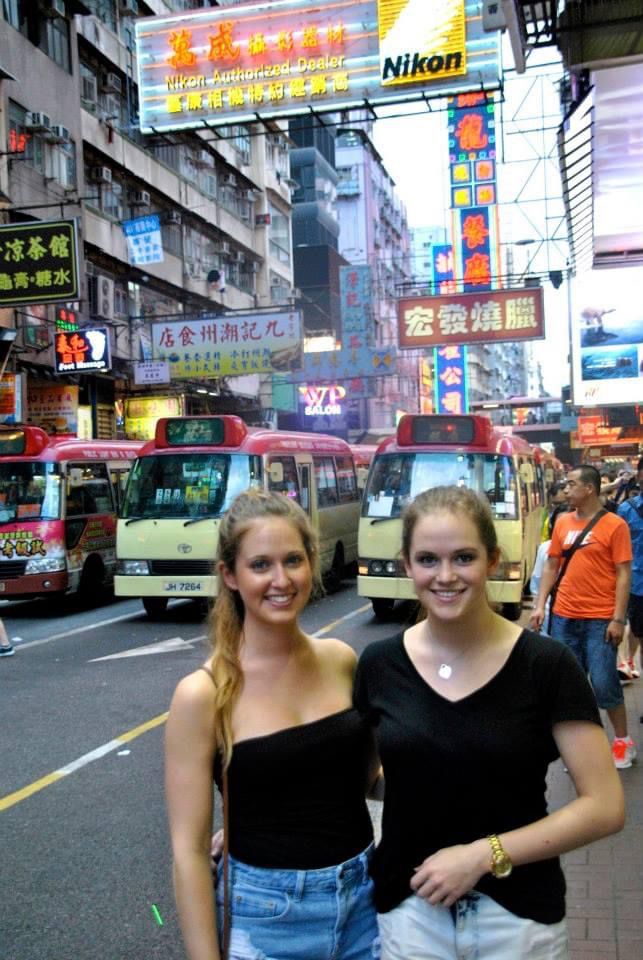Ten years ago, Antje Schwarz joined the Impact Lab Course to help set up Fair Employment Agency, which later went on to garner recognition and awards for its impactful work in setting a new standard of professionalism for all migrant domestic worker employment agencies. As a 20-year-old with no prior experience in team management and operations, Antje took on the challenge and was able to craft her career plans as a result of the internship experience.
“What I really like about the course is that it puts a lot of trust and responsibility on the shoulders of the students, but it also makes sure that help and assistance is available,” said Antje.
Read our interview with Antje to learn more about the skills and mindset she took away from the Impact Lab Course, and why the course should be offered at every university.
Which year did you join the Impact Lab Course (formerly known as the SVM Course)? Why did you register for the course?
I studied at HKU between the Fall 2013 and Spring 2014 as an exchange student from the UK. I had already taken a course with David Bishop and I really liked it; I thought David was a fun, smart, energetic person. When you’re studying and learning in university, it’s fun when there’s someone who doesn’t take himself too seriously but simultaneously teaching you something valuable.
David introduced me to the Impact Lab Course, and around that time I also got to know Scott Stiles, who was fairly new to Hong Kong at that time and in the process of setting up Fair Employment Agency, of which he would later become Co-founder and CEO.
I like the idea of working for organizations that are trying to create social impact. As an exchange student, I didn’t have the opportunity to work in Hong Kong, so Impact Lab Course was the perfect opportunity for me to gain hands-on work experiences through the university, while contributing to the societal challenges here and to getting to know more about them as well.
The exploitation of migrant domestic workers was a social issue totally unknown to me. The idea of setting up an employment agency to tackle the exploitation of migrant domestic workers appealed to me, and I really liked the Impact Lab Course for introducing me to the social issues Hong Kong was facing at the time. So in Spring 2014, I registered for the Impact Lab Course and worked for Fair Employment Agency. I stayed on after the course as a full-time intern until end of August. What is really nice about that is that I started with the work for Fair Employment Agency during the semester, and I continued to see the progress that was being made throughout summer.

What were your roles and responsibilities at Fair Employment Agency?
I was responsible for managing a small team of four. I did a lot of operations type of work, like preparing an operational plan, which was new to me and the students I was managing. It was a great learning experience for us. From the theoretical exercise during the semester, we were able to see, in summer, Fair Employment Agency being accredited and approved, getting business-ready and being operational. As I was leaving, Scott was getting ready to grab our first client.
What are some of the major learnings you have gained, or memorable experiences that you had at the Impact Lab Course?
It was the first time that I did any management work. I really like it that there was total trust from David and Scott. They said, “We think you can take on this challenge, so see how you get on.” For the better half of the last five years, I’ve been in a management position. It’s something I really enjoy doing. Some people take on management work because they have to; for me, it’s something that gives me energy. I knew this from my experience with the Impact Lab Course. I was 20 years old, and I had that trust put in me to give it a go.
Ironically, I’m currently the operations director of the company I work for. At Fair Employment Agency, I learnt to put together an operational plan and manage my first teams, and now, 10 years on, what I did is very representative of what I do for a living. It was a very neat personal experience that allowed me to think about what I wanted to do.
Taking the Impact Lab Course was my first exposure to the idea of a social business: how does it work, how is it different to charity, and the notion that you can build a business that is profitable and then pump funds back into its social cause without relying on external funding. That was my first exposure to the idea that not all purpose work necessarily needs to be done in the form of a charity.
My Impact Lab experience instilled the idea in me that what you do for a living should be purposeful, whatever that looks like to you as an individual. It encouraged me to accept my role as Operations Director for the Special Olympics World Games, a publicly-funded NGO that recently organized the Special Olympics World Games in June 2023, which is the world’s largest multi-sport event for people with intellectual disabilities. Although my time here is coming to an end, it will continue to be a critical factor in my future career choice(s): is the company I am working for solving a relevant challenge of our generation and is it committed to doing good?
It was the first time that I did any management work. I was 20 years old, and I had that trust put in me to give it a go.
How has your Impact Lab experience influenced your career? What are your main takeaways?
One of my main takeaways is to be motivated by something other than money. I like to think of money as a hygiene factor: you need to earn the amount that would allow you to achieve your life goals, but work is a lot more fun if you know what you are doing it for. I just really enjoyed my time at Fair Employment Agency because I was convinced that what we were doing was for a good reason. Having such as sense of purpose is a powerful thing, and I think everyone should give such kind of opportunities a try.
There were many skills that we developed during the internship. We gave presentations, we learnt about management coordination, we researched on building a business from a legal perspective, we interacted with some of the potential clients, we did research into operational software and whether any had special offerings for social enterprises or not-for-profits.
What I really like about the course is that it puts a lot of trust and responsibility on the shoulders of the students, but it also makes sure that help and assistance is available. So I never felt like, “Oh, I have no clue what I’m doing and I’m going to fail!”, because I knew there’s this safety net in place to support the students.

Your take on youth empowerment – is it important, and why? What do you think is key to youth empowerment initiatives?
Youth empowerment is super important and it can take on many forms. When I was 17 and applying for university courses, I had no clue what I wanted to do. Some people may have a clear idea of what they want to do at an early age, but most of the people I know didn’t have a clue what they would want to do after high school or during their early years in university.
I think university is in itself an important empowerment: it teaches you how to learn, how to approach challenges, how to navigate chaos to reach your goals. But all of this is theoretical. What Impact Lab specifically does is that it bridges the gap between the theoretical and the practical by exposing students to tasks, activities, and challenges people would be facing in the real world.
Empowerment in terms of exposure to real-life experiences, including what might that look like and what might interest you, is very important in shaping people’s next steps in university. Because most young people don’t have that insight at 17, we pick university courses and degrees that we think sound nice but which we don’t really know if it’s something that’s going to be useful. Having the practical experience offered by Impact Lab, I and the other students were thrown into the deep end just the right amount, so that we could learn for ourselves and figure out our goals and objectives and how we can get there. It was a really nice way to learn hands-on practical skills, explore what might be interesting beyond university, and what might that mean for the rest of my university time.
What would you say to upcoming cohorts of Impact Lab students?
To people who are uncertain whether they will have time for the Impact Lab Course, I would say that it is definitely worth your time. You’ll still have time to do all the other stuff. You’ll still have the time to explore the city and go to the bars.
Once you have started your internship, don’t be scared to do things that you’ve never done before. Trust your instinct. Put yourself in the shoes of the end-user or beneficiary. Learn from each other: we all bring our own set of strengths and weaknesses to the workplace after university, and we are definitely stronger together. Team up to tackle challenges, divide and conquer, because you’ll be stronger for it. And also, it’s an awesome course, so just have fun!




